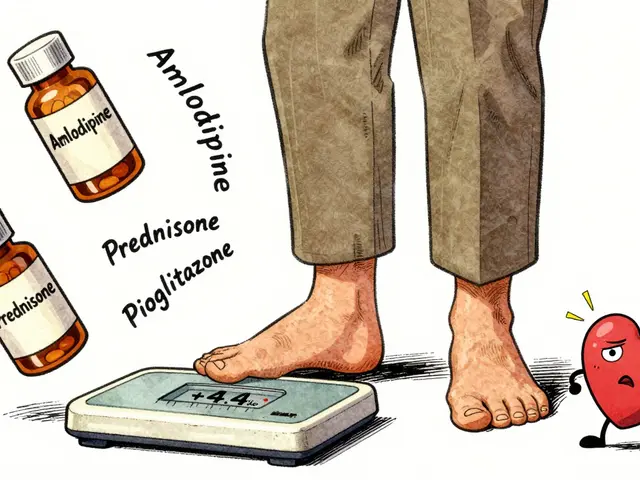Skin Health: Practical Tips and Latest Drug Updates
Want skin that feels comfortable and looks fresh? You don’t need a magic potion—just a few solid habits and the right info about new medicines. Below you’ll find everyday steps you can start today and a quick look at cutting‑edge drugs that are changing how we treat skin problems.
Everyday Habits for Clear Skin
First off, hydration matters. Drinking enough water helps your skin stay supple, but it’s not a substitute for a good moisturizer. Pick a fragrance‑free lotion that matches your skin type and apply it right after a shower while your skin is still damp.
Sun protection is non‑negotiable. Even on cloudy days, UV rays can trigger premature aging and dark spots. A broad‑spectrum SPF 30 or higher does the trick—spray it on your face, neck, and any exposed area, and reapply every two hours if you’re outdoors.
Sleep isn’t just for the brain; it’s when skin repairs itself. Aim for seven to nine hours of quality rest. If you struggle with nighttime cravings, a small dose of a calming supplement like Linden or Sour Cherry can improve sleep without a prescription.
Stress spikes can flare up conditions like acne or eczema. Simple breathing exercises, quick walks, or a short meditation break can calm the nervous system and reduce inflammatory skin flare‑ups.
New Treatments Making Waves
Researchers are testing drugs that target the root cause of skin disorders, not just the symptoms. Baricitinib, a JAK inhibitor originally used for rheumatoid arthritis, is showing promise in repigmenting vitiligo patches. Early trials report noticeable color return after several months, and the side‑effect profile is manageable for most patients.
For fungal skin infections, fluconazole offers an oral alternative to topical creams. It works by disrupting the cell membrane of the fungus, clearing stubborn infections on the scalp, nails, or body. Doctors typically prescribe a short course—usually two to three weeks—depending on the infection’s severity.
If you notice unusual hair loss while taking cholesterol‑lowering meds, you might wonder if cholestyramine is the culprit. Some users report thinning hair, likely due to nutrient binding. Switching to a different bile‑acid sequestrant or adding a biotin supplement can help keep your hair and scalp healthy.
Even nasal sprays can affect skin health indirectly. Fluticasone nasal spray reduces inflammation in the nasal passages, which can lessen post‑nasal drip that irritates the skin around the nose. Using the spray as directed keeps both your sinuses and surrounding skin calm.
Remember, any new medication should be discussed with a healthcare professional. They’ll weigh benefits against potential side effects and monitor progress. Keeping a simple journal of symptoms, new products, and diet changes can help your doctor fine‑tune the treatment plan.
Bottom line: good skin starts with consistent care and stays healthy when you stay informed about emerging therapies. Stick to the basics—hydration, sunscreen, sleep, stress control—and stay open to doctor‑guided options like Baricitinib or fluconazole when you need extra help. Your skin will thank you.

Horsetail Supplement: Boost Hair, Skin & Nail Health Naturally
- By : Tamsin Riverton
- Date : Jul 29 2025
Discover how horsetail, a silica‑rich herb, can enhance hair, skin, and nail health. Learn the science, dosage, safety, and how it stacks up against other popular supplements.




